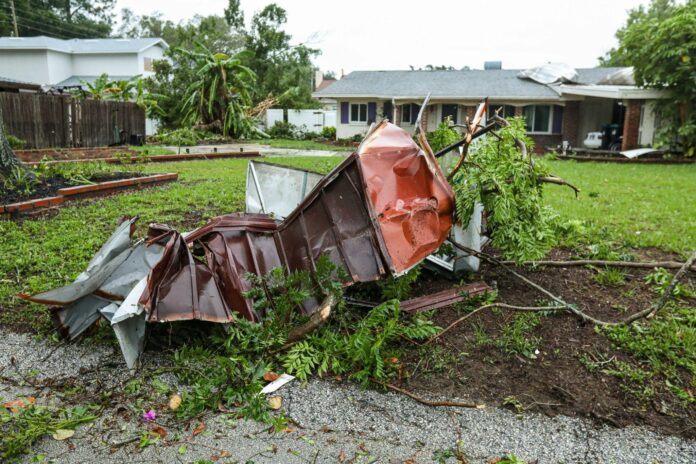Hurricane season means much more than high winds and storm surges, as these storms also tend to bring a lot of financial damage in their wake. For example, in 2022, Hurricane Ian hit Florida before sweeping up the Carolinas, causing $112.9 billion in damages, and the bill for Hurricane Harvey that hit Texas in 2017 came to $125 billion. Overall, the average damage caused by a single hurricane is approximately $22.8 billion.
Hurricanes don’t care what’s in their way, and unfortunately, that includes your residence, store, storage facility, or other properties related to your business. That’s why having a comprehensive insurance policy is essential.
Based on my experience as an insurance defense attorney, here’s what home and business owners need to know about hurricane insurance to protect themselves.
Kinds of insurance that protect against hurricane damage
No business owner’s hurricane preparation is complete without investing in insurance. The most important thing to note is that many — perhaps even most — standard insurance policies on residences and property do not cover flood damages that may result from hurricanes. This means that if you only have a standard policy on your property, you may be left high and dry in the event of a major storm where the storm surge causes damage to your property.
It’s essential to always read your policy carefully and check specifically to ensure it covers hurricanes. If it does, note whether it lists a separate deductible for expenses related to them, which you also need to feel comfortable handling. Otherwise, it’s wise to review your options for driving it down.
If your existing policy doesn’t cover flood damage, separate flood insurance is the first kind of insurance you should add. This type of coverage protects your buildings from the incursion of water from outside your property, such as from a storm surge.
While every home or small business owner should ensure their policies include both kinds of coverage, flood and windstorm insurance are particularly important for those whose property is located in coastal areas that tend to be more vulnerable to hurricanes.
However, preparing for hurricane season means more than ensuring your coverages are adequate and current. You will also need to document the condition of your property.
Before the hurricane: Document your property’s condition
When a hurricane damages your property, your claim will have the best chance of success if you can demonstrate that it was the storm that caused the damage rather than a different cause. For this reason, it’s advisable to document your possessions with written descriptions and have a complete inventory on hand.
You should also take photographs, videos, or other evidence of your home or office’s condition before a storm hits. For best results, these images should have been taken relatively recently — preferably within the week before the storm’s predicted landfall — not years previously. That’s why I advise home and business owners to take the time to document the good condition of their property every year before hurricane season begins.
Along the same lines, it’s vital to keep your property well-maintained and document this maintenance by keeping records and taking photographs. If a building has not been maintained adequately, it can affect coverage, as most policies do not cover faulty, inadequate, or defective maintenance.
After the hurricane: Contact your carrier without delay
Let’s say a hurricane makes landfall, and your property unfortunately sustains damage. The first thing you should do is contact your insurance carrier and report the claim so they can start their investigation.
Next, document all the damage you see. Submit both “before” and “after” images that clearly show the storm’s impact on your property.
In addition, be careful when performing any mitigation or otherwise removing the damaged property before talking with your insurance company and giving them the opportunity to inspect. If you do end up discarding anything, take photographs showing its condition. It’s also a good idea to preserve samples of the materials the storm damaged, such as a patch of the carpeting or a swatch of the curtains.
Furthermore, communicate with the insurance carrier and ensure they have completed their investigation before making repairs. Otherwise, you may put your coverage in jeopardy, as policies normally require an insured to show the damaged property to the carrier.
In my experience, these companies often have preferred contractors and other vendors who can assist with any water mitigation, tarping, or work you may need. It will be important to follow their guidance on these matters. Be wary of unscrupulous contractors who may take advantage of the situation and leave you in a worse position with your carrier.
Position yourself best to weather a hurricane
Hurricanes are expected to increase in severity and destructiveness, which is why home and business owners should take the time now to ensure maximum protection for their buildings and other property. A combination of flood and windstorm insurance policies can help shield your future, but only if you document your assets appropriately, keep them well-maintained, and communicate promptly with your insurance carrier.
Prepare for the worst, and you’ll put yourself in the best position in the event of a hurricane.
Find a Home-Based Business to Start-Up >>> Hundreds of Business Listings.

















































